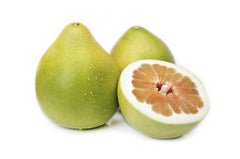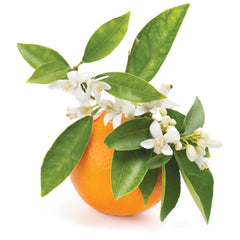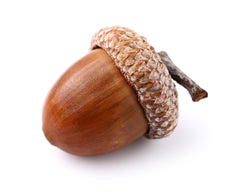What Does Pine Tar Smell Like?
Black Friday Fragrance Deals
Click For Affordable Inspired Perfume Alternatives

Embark on a rustic journey to the heart of evergreen forests and explore the distinctive aroma of pine tar. Derived from the resinous sap of pine trees, pine tar boasts a robust and earthy fragrance that captures the essence of wooded landscapes. Join us as we delve into the question: What does pine tar smell like?
What Does Pine Tar Smell Like?
The fragrance of pine tar is a captivating blend of earthy, smoky, and resinous notes. Imagine the rich scent of pine forests with a touch of smokiness, reminiscent of a cozy evening by the campfire. Pine tar's aroma is a tribute to the great outdoors, offering a grounding and invigorating olfactory experience.
Pine Tar's Forest Symphony
Enter the enchanting world of pine tar, where the fragrance is a symphony of woodland aromas. Join me on a fragrant journey to discover the captivating aroma that defines the essence of pine tar.
Earthy Resin: A Forest Floor Embrace
As you approach pine tar, the first olfactory impression is an embrace of earthy resin. Picture the scent of a forest floor covered in pine needles and resinous sap. Pine tar's fragrance is a celebration of the grounding and comforting essence of the great outdoors, instantly transporting you to a serene woodland with its earthy and resinous character.
Smoky Warmth: A Campfire's Embrace
The scent of pine tar carries a subtle smokiness, like the warmth of a crackling campfire in the midst of a pine forest. This smoky undertone adds depth to the fragrance, creating a cozy and inviting atmosphere. Pine tar's aroma is a testament to the smoldering embers and woody warmth that characterize a night spent under the stars.
Woody Intensity: Forest Canopy Whispers
The fragrance of pine tar is marked by a woody intensity, reminiscent of the whispers of a forest canopy. It captures the essence of tall pine trees standing majestically, their resinous sap infusing the air with a rich and robust aroma. Pine tar's woody notes contribute to the overall complexity of the scent, creating an immersive olfactory experience.
Resinous Purity: Essence of Pine Trees
Delve deeper into the scent, and you may notice a resinous purity that characterizes pine tar's fragrance. It's as if the aroma encapsulates the very essence of pine trees, with their resin-filled bark and needles. This resinous quality adds a touch of freshness to the fragrance, creating a rejuvenating and invigorating olfactory experience.
Pine Tar's Woodland Harmony
Hence, pine tar's fragrance is a woodland harmony of earthy resin, smoky warmth, woody intensity, and resinous purity. It stands as a testament to the robust and grounding qualities of this natural resin, offering a sensory experience that is both comforting and invigorating. Pine tar, with its earthy and complex aroma, invites us to embrace the rustic notes found within its essence, a fragrant journey that unfolds with every immersive whiff.
Factors Influencing the Scent of Pine Tar Fragrance Oil
Pine tar fragrance oil is a meticulously crafted composition designed to capture the robust and earthy aroma of pine tar. The formulation of this fragrance involves a thoughtful combination of aromatic compounds. Here are several factors that contribute to the rich and smoky scent of pine tar fragrance oil:
-
Fragrance Composition: Pine tar fragrance oil is a carefully blended mixture of various aromatic compounds, chosen to replicate the characteristic scent of pine tar. This composition may include both synthetic and natural ingredients to achieve the desired olfactory profile.
-
Pine Resin Essence: At the core of the fragrance lies the essence of pine resin. Notes of resinous sap, with a perfect balance of earthiness and smokiness, are intricately blended to mirror the grounding and invigorating aroma of pine tar.
-
Synthetic vs. Natural Components: Pine tar fragrance oil often combines both synthetic and natural ingredients. Perfumers make choices to strike a balance between authenticity, cost considerations, and sustainability in the selection of these components.
-
Extraction Method: The method used to create pine tar fragrance oil, whether through distillation or extraction, plays a crucial role in defining the aromatic profile. Specific extraction methods contribute to the faithful recreation of the rich and smoky scent.
-
Additional Woody and Earthy Notes in the Blend: The fragrance may incorporate additional woody elements or subtle earthy notes to enhance complexity. These complementary notes contribute to the overall robustness of the scent, capturing the essence of pine tar.
-
Quality of Ingredients: The quality of raw materials, including the source of essential components, directly influences the richness and authenticity of the pine tar scent in the fragrance oil.
-
Perfumer's Artistry: The expertise and creativity of the perfumer or fragrance creator are crucial. Perfumers leverage their skills to balance different components, creating a distinctive and delightful pine tar fragrance.
-
Regulatory Compliance: Adherence to regulatory standards and restrictions on certain fragrance ingredients is crucial. Compliance with safety guidelines requires careful consideration of ingredient choices to ensure the fragrance is safe for use.
-
Usage in Products: Pine tar fragrance oil can be incorporated into various products, including candles, soaps, room sprays, and bath products. The interaction with other ingredients in specific product formulations can influence how the pine tar scent is perceived.
-
Product Type and Concentration: The concentration of pine tar fragrance oil in a product affects the strength and longevity of the scent. Higher concentrations may be suitable for candles, while lower concentrations work well for soaps, room sprays, or other applications.
-
Storage Conditions: Proper storage conditions for pine tar fragrance oil, both before and after formulation, are essential to maintain its stability and scent. Storing it in a cool, dark environment helps preserve the freshness of the fragrance.
-
Consumer Preferences and Trends: Formulations of pine tar fragrance may adapt to changing consumer preferences and market trends. The popularity of earthy and woody scents or unique blends may influence product formulations.
-
Artisanal vs. Commercial Production: Differences between artisanal and commercial production of pine tar fragrance oil may impact ingredient sourcing, formulation, and overall quality. Artisanal methods may emphasize craftsmanship and unique blends.
-
Post-Formulation Processing: Additional processes, such as aging or filtering after the formulation of the fragrance oil, may influence the final scent and contribute to the desired characteristics.
Exploring different formulations of pine tar fragrance oil allows consumers to experience a range of earthy and smoky scents reminiscent of the great outdoors. Individual preferences play a significant role in selecting the perfect pine tar fragrance for various applications.
What to Look for When Choosing Pine Tar Fragrance Oil
Selecting a pine tar fragrance oil allows you to immerse yourself in the rich and smoky aroma of pine forests. Whether used in candles, diffusers, or personal care products, consider these factors to ensure you choose a high-quality and authentic pine tar fragrance oil:
-
Woody Authenticity: Seek a pine tar fragrance oil that authentically captures the robust, woody, and resinous scent of real pine tar. Look for a fragrance that embodies the unique forest notes characteristic of quality pine tar.
-
Natural vs. Synthetic: Determine whether the fragrance oil is derived from natural sources or is synthetically produced. Natural pine tar oils can provide a more nuanced and realistic scent, closely resembling the aroma of actual pine tar.
-
Blend Ingredients: Check the blend of ingredients in the fragrance oil. A well-crafted combination of natural and synthetic components can contribute to a balanced and long-lasting pine tar fragrance.
-
Intensity Level: Consider the intensity level of the pine tar fragrance. Some may prefer a subtle and grounding scent, while others may desire a more pronounced and invigorating aroma. Look for a fragrance that aligns with your desired level of intensity.
-
Versatility: Choose a fragrance oil that is versatile and suitable for various applications. Whether used in candles, soaps, lotions, or diffusers, versatility allows you to enjoy the earthy scent in different settings.
-
Packaging: Assess the packaging of the fragrance oil. Opt for a bottle that is dark or opaque to protect the oil from light exposure, preserving its freshness and preventing deterioration over time.
-
No Residue or Discoloration: Ensure that the pine tar fragrance oil leaves no residue or discoloration when incorporated into different products. A high-quality oil should seamlessly integrate into various mediums without causing unwanted effects.
-
Manufacturer Reputation: Research the reputation of the manufacturer or brand. Choose well-established brands with positive reviews, as they are more likely to produce reliable and high-quality fragrance oils.
-
Testing Options: Look for fragrance oils that offer testing options or sample sizes. This allows you to experience the scent firsthand before committing to a larger quantity, ensuring it aligns with your preferences.
-
Ethical and Sustainable Practices: Consider the manufacturer's commitment to ethical and sustainable practices. Brands that prioritize responsible sourcing and environmentally friendly production contribute to a more conscientious choice.
By considering these factors, you'll be better equipped to choose a pine tar fragrance oil that not only aligns with your preferences but also ensures a high-quality and grounding olfactory experience in your chosen applications.
Where to Find Reputable Pine Tar Fragrance Oils
Explore the following sources to find high-quality and authentic pine tar fragrance oils for your aromatic endeavors:
-
Specialty Candle and Soap Supply Stores: Dedicated stores for candle-making and soap supplies often carry a variety of fragrance oils, including unique scents like pine tar. Check for options suitable for crafting candles, soaps, and other scented products.
-
Online Fragrance Oil Retailers: Reputable online platforms specializing in fragrance oils, aromatherapy, or DIY crafting may offer an extensive selection of pine tar fragrance oils. Read product descriptions and customer reviews for authenticity and quality.
-
Artisanal or Handmade Markets: Explore artisanal markets or craft fairs where independent sellers showcase handmade products. Artisan vendors may create unique and carefully crafted pine tar fragrance oils, providing an opportunity to explore distinct options.
-
Local Essential Oil or Perfume Shops: Specialty shops focusing on essential oils or perfumes may carry pine tar fragrance oils. Inquire about the availability of pine tar scents to add an earthy and woody aroma to your living space.
-
Online Marketplaces: Platforms like Etsy or other online marketplaces featuring handmade or artisanal products can be sources for pine tar fragrance oils. Look for sellers with positive reviews and detailed information about their products.
-
Aromatherapy Stores: Aromatherapy stores often carry a variety of fragrance oils for different applications. Inquire about the availability of pine tar scents to infuse a grounding and smoky aroma into your surroundings.
-
Local Farmers' Markets or Herbal Shops: Check with local farmers' markets or herbal shops that specialize in natural products. Some of these establishments may offer fragrance oils with botanical scents, including pine tar.
-
Specialty Perfume Retailers: Explore specialty perfume shops that focus on unique and exotic fragrances. These stores may carry pine tar fragrance oils known for their distinctive and earthy notes.
-
Word of Mouth: Seek recommendations from friends, family, or members of fragrance communities for trusted sources of pine tar fragrance oils. Personal experiences and suggestions can guide you to reputable suppliers known for quality and authenticity.
-
Check Ingredients and Descriptions: Before making a purchase, carefully read product descriptions and check ingredient lists for pine tar fragrance oils. Authentic and reputable sellers provide clear information about the composition and intended use of their products.
Note: Pine tar fragrance oils can bring a robust and earthy note to your DIY projects. Ensure that the fragrance oil you choose aligns with your intended use, whether it's for candles, soaps, diffusers, or other creative endeavors. Follow safety guidelines provided by the manufacturer for proper usage.
20 Questions and Answers about Pine Tar:
-
What is pine tar? Pine tar is a sticky substance obtained by the destructive distillation of pine wood. It is commonly derived from the wood of pine trees.
-
How is pine tar used in perfumery? Pine tar is used in perfumery to impart a unique smoky, woody, and sometimes leathery note to fragrances. It adds depth and complexity to certain scent compositions.
-
What type of fragrances is pine tar commonly found in? Pine tar is often used in masculine or unisex fragrances, particularly in those with woody or smoky accords. It can be a prominent note in some niche or artisanal perfumes.
-
Does pine tar have any therapeutic properties in perfumery? While pine tar is not known for therapeutic properties, its aromatic profile may evoke a sense of nostalgia or connection to nature in perfumery.
-
Can pine tar be a dominant note in a fragrance? Yes, pine tar can be a dominant note, especially in perfumes designed to have a strong, outdoorsy, or rugged character.
-
What are the challenges of working with pine tar in perfumery? Pine tar's strong and distinctive scent can be challenging to balance, and its intensity may overpower other notes if not used judiciously.
-
Is pine tar used in natural or synthetic form in perfumery? Pine tar is typically used in its natural form in perfumery. However, certain synthetic alternatives may mimic its scent profile.
-
Can pine tar be blended with other fragrances? Yes, pine tar can be blended with various fragrances, including citrus, floral, and spicy notes, to create complex and well-rounded perfumes.
-
Does pine tar vary in scent depending on the source? Yes, the scent of pine tar can vary based on the specific type of pine tree from which it is derived.
-
Are there any cultural or historical significances associated with pine tar in perfumery? Pine tar has historical uses, especially in traditional medicine and as a preservative for wood. In perfumery, it may evoke memories of traditional craftsmanship.
-
Can pine tar be used in natural or organic perfumery? Yes, pine tar can be incorporated into natural or organic perfumes, aligning with the preferences of consumers seeking eco-friendly and sustainable options.
-
Is pine tar safe for use on the skin in perfumes? In controlled and diluted amounts, pine tar is generally considered safe for use on the skin in perfumes. However, sensitivity varies among individuals.
-
Does pine tar have any color, and can it stain clothing in perfumes? Pine tar is often dark brown or black, and in concentrated forms, it may stain clothing. Perfumers usually use diluted solutions to minimize this risk.
-
Are there specific regions known for producing high-quality pine tar for perfumery? Different pine species are found worldwide, and the quality of pine tar can vary. Some regions, like Scandinavia and the Baltic states, are known for high-quality pine tar.
-
Can pine tar be used in combination with essential oils? Yes, pine tar can be blended with various essential oils to create unique and personalized fragrances.
-
Does pine tar have any symbolic or cultural associations in perfumery? Pine tar may symbolize a connection to nature, forestry, or traditional craftsmanship in certain cultural contexts.
-
Can pine tar be used in mainstream commercial perfumes, or is it more common in niche fragrances? While pine tar is more commonly found in niche and artisanal fragrances, some mainstream perfumes may incorporate it for a distinctive touch.
-
Can pine tar be used in other personal care products beyond perfumes? Yes, pine tar is used in various personal care products such as soaps, shampoos, and beard oils due to its aromatic properties.
-
Is there a recommended concentration or usage rate for pine tar in perfumery? The recommended concentration of pine tar in perfumery varies based on the desired intensity, but it is typically used in lower percentages due to its potent nature.
-
Are there any regulations or restrictions on the use of pine tar in perfumery? Regulations on the use of pine tar in perfumery may vary by country, and it's essential for perfumers to comply with local guidelines and restrictions on fragrance ingredients.
Buy Perfumes - Best Online Retailers
Click For Affordable Inspired Perfume Alternatives
Click For The Best Niche Perfumes & Decants
Pheromone Perfumes - Confidence, Attraction & Appeal - Click For More
Home Fragrances & Candle Warmers - Click To Scent Up Your Spaces Today!



